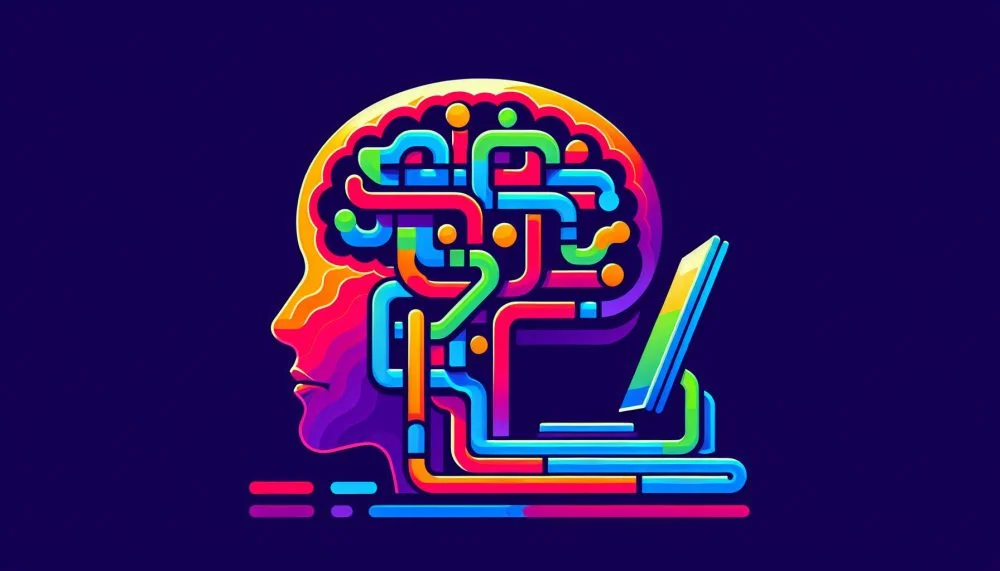Microsoft is pushing for laptop users to feel more comfortable using its AI chatbot, aiming to make it so familiar with user habits that it can predict what they want to do next.
On Monday, the tech giant revealed new AI-powered laptops to compete with other big tech rivals, especially when it comes to generative AI. This technology can write documents, create images, and act as a smart personal assistant for work or home use.
At its annual Build developer conference, Microsoft announced that it would integrate its AI assistant, Copilot, into the Windows operating system, bringing AI tools to millions of PC users. A major feature, Windows Recall, gives the AI assistant “photographic memory” of a user’s computer activity.
However, Microsoft promises to respect user privacy, allowing them to filter what gets tracked and keep the tracking data stored locally.
According to Microsoft CEO Satya Nadella, we are entering a new era where computers can understand and even predict our needs.
This shift in AI technology will allow machines to “see, hear, and reason about our intent and surroundings.” Nadella made these statements at an event held at Microsoft’s headquarters in Redmond, Washington.
Microsoft’s announcement comes shortly after similar AI-related news from its competitors Google and OpenAI. Google recently launched an updated search engine that adds AI-generated summaries above search results.
They also previewed their AI assistant, Astra, which can “see” and discuss objects shown through a smartphone camera.
Last week, OpenAI, Microsoft’s close business partner, also made waves by introducing a new version of its ChatGPT AI, featuring a voice assistant capable of casual conversation and even interpreting emotions.
This voice was so realistic that OpenAI had to remove it after comparisons were made to Scarlett Johansson’s AI character in the movie Her.
OpenAI also launched a new desktop version of ChatGPT for Mac computers.
Apple is expected to make its own big AI announcements at their developers’ conference in June. Apple CEO Tim Cook has hinted at major investments in generative AI, signaling that competition will continue to heat up.
Microsoft seems to be getting ahead of Apple’s event by releasing their AI-enhanced Windows PCs on June 18. These computers, made by partners like Acer, ASUS, Dell, HP, Lenovo, and Samsung, will feature Microsoft’s Copilot AI but will only be available in premium models starting at $999.
Although Copilot is based on OpenAI’s large language models, Microsoft will also use its own smaller language models to make the AI more efficient and easier to run on personal devices.
These AI PCs will be powered by Qualcomm chips and will appeal to large organizations looking to upgrade their systems.
According to Gartner analyst Jason Wong, these AI features will let users perform tasks like graphics production and language translation without needing constant internet access, boosting performance.
Google Bard and Its Role in AI-Powered Devices
Google Bard AI, another big player in the AI space, is expected to play a significant role in this growing market. As Google’s AI assistant, Bard has been developed to assist users in generating text, solving complex problems, and even creating art.
With Microsoft embedding AI into its Windows OS, Google Bard’s presence will likely push Google to incorporate similar AI features into Chromebooks and other devices.
This competition will benefit consumers by giving them access to smarter, more intuitive devices that can predict their needs and perform tasks without the constant need for internet connectivity.
As AI continues to grow, we can expect both Microsoft and Google to expand their AI functionalities, making their devices more efficient and capable.
Impact of AI on User Experience The integration of AI that shows How Microsoft AI and Google Bard laptops will revolutionize how people use their devices.
These AI tools will improve productivity by anticipating tasks, remembering user preferences, and assisting with complex activities. Additionally, AI models running locally on personal computers will ensure faster processing and better performance, even when offline.
In the near future, AI assistants will be a common feature in premium laptops, helping users with tasks from document creation to image generation, and even managing work-life balance.
With AI advancements from both Microsoft and Google, users can expect smarter, faster, and more intuitive devices that will reshape their digital experience.
Conclusion The competition between Microsoft, Google Bard, and other AI leaders is driving innovation in the laptop market. As AI continues to evolve, we can expect more powerful, privacy-focused, and efficient devices that make daily tasks easier and more intuitive.





















